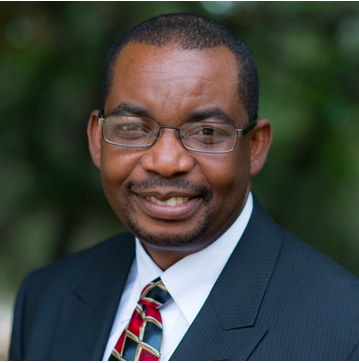As a teacher, scholar, and mentor, Professor Bala Musa models the belief in teaching as a mode of friendship and a commitment to holistic excellence. Professor Musa is active in many national, regional, and international academic and professional associations. He currently serves on the editorial board of the American Communication Journal and the Journal of African Social Sciences and Humanities Studies.
What makes you passionate about teaching your particular subject?
Communication studies scholars believe "to be human is to be in a relationship." Human and mediated communication permeate all aspects of life. As a media ecologist, I believe history is shaped by modes of communication. This is evident in the influence of new media communication on all institutions including family, religion, education, politics and business. I am passionate about what I teach because when communication succeeds, life succeeds. When communication fails, life fails. This is true in the family, in the community, at work and in government.
What have you learned about yourself or your world view from teaching college students?
Life is one endless classroom. There is much to learn in and out of the classroom. I am a life-long learner. I expect to learn from my students, just as they learn from me. I enjoy being a student as much as I enjoy being a teacher. Every now-and-then, I return to the classroom as a student. I earned a second masters degree while I was a professor and department chair. I value mentoring relationships. I have benefited from being mentored and mentoring others.
What projects, if any, are you currently working on? Please tell us a little about it.
I am working on several research projects, including: a joint-research on Religion and Social Media Use in a Time of Crisis (COVID-19), a joint-chapter on "Religion and Online Community in African Contexts" for Oxford Handbook on Digital Religion, a chapter on "Glocalization of Films and Cinema Industry," for Handbook of Culture and Glocalization,” and a book on Media and Pop-Culture in Africa.
What has been your proudest moment of your career so far?
I have much for which to be grateful to God. By His grace, many students I have mentored have gone on to be difference-makers in their fields. Some students I have inspired have gone on to earn their doctorates and are now professional peers, just as I am collaborating in scholarship and academic projects with some of my former professors. I am both a teacher and a parent. The proudest moment for teachers and parents is seeing their wards go on to impact society in positive ways. There are too many names to mention, of people who have changed the course of their lives through interactions. I consider those successes as the proudest moments of my careers.
What are your ultimate goals when it comes to teaching the next generation?
My goal is to equip a generation of citizens and leaders who embrace civic values, care about others, choose service over self and see their education as an opportunity to advance the Kingdom of God through their talents and gifts.
What’s your advice to someone pursuing a career in the field you teach?
Cultivate curiosity about the world around you. The information and digital revolution has created a global environment that needs human and media communication competence. Media literacy and cultural literacy are more important now than ever. The demand for your expertise will continue to grow. Sharpen and update your knowledge and skills so you can serve society effectively.
